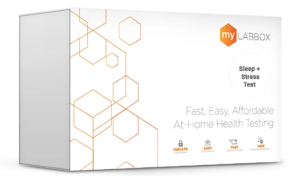Hormones play a crucial role in our overall health and well-being, and imbalances can have significant impacts on various aspects of our lives. If you suspect you may have a hormone imbalance, timing your hormone testing correctly can provide more accurate results and aid in proper diagnosis and treatment.
In this blog post, we will explore the best time to test for hormone imbalance, considering factors such as menstrual cycles, hormone fluctuations, and specific hormonal conditions. By understanding the optimal timing for hormone testing, you can take proactive steps towards addressing any imbalances and improving your hormonal health.

Table of Contents
Hormonal Fluctuations: Understanding the Importance of Timing in Hormone Testing
Timing plays a critical role in hormone testing accuracy and interpretation. Hormone levels fluctuate throughout the day, and the timing of testing can significantly impact the results. It’s essential to understand the specific hormone being measured and its natural patterns of secretion. For some hormones, such as cortisol, testing in the morning provides the most accurate reflection of daily fluctuations.
On the other hand, reproductive hormones like estrogen and progesterone may require specific timing based on menstrual cycle phases. By coordinating hormone testing with the appropriate time frame, healthcare professionals can obtain more precise information about hormone levels, aiding in diagnosis, treatment planning, and monitoring of hormonal imbalances.
Investigating the Impact of Menstrual Cycles on Hormone Testing Accuracy
Menstrual cycles can have a substantial impact on hormone testing accuracy, particularly for reproductive hormones. Hormone levels fluctuate throughout the menstrual cycle, and different phases have distinct hormone profiles.
For instance, measuring estrogen and progesterone levels during specific phases, such as the follicular or luteal phase, provides a more comprehensive understanding of reproductive function. Testing during the wrong phase can lead to inaccurate interpretations and missed diagnoses.
Healthcare professionals should consider menstrual cycle timing when ordering hormone tests and take into account the individual’s cycle regularity and characteristics. By aligning hormone testing with the appropriate menstrual cycle phase, healthcare providers can obtain more accurate results and gain valuable insights into reproductive health and hormonal balance.
The Influence of Age and Life Stage on Hormone Imbalance Detection
Age and life stage significantly influence hormone imbalance detection. Hormonal fluctuations occur naturally throughout various life stages, such as puberty, pregnancy, perimenopause, and menopause. These transitions can bring about significant changes in hormone levels, leading to imbalances and related symptoms.
Detecting hormone imbalances requires an understanding of the specific hormones relevant to each life stage and the corresponding reference ranges. Healthcare professionals should consider age and life stage when evaluating hormone levels and interpreting test results.
By recognizing the unique hormonal dynamics at different stages of life, healthcare providers can better diagnose and manage hormone imbalances, improving overall well-being and quality of life.
Navigating the Optimal Timeframe for Hormone Testing for Accurate Results
Navigating the optimal timeframe for hormone testing is crucial for obtaining accurate results. Hormone levels often exhibit diurnal or circadian rhythms, meaning they vary throughout the day. Additionally, certain hormones have specific timing requirements based on menstrual cycle phases.
Therefore, healthcare professionals must consider the appropriate timeframe for hormone testing to ensure accuracy and reliability. Factors such as fasting requirements, specific time of day, or menstrual cycle tracking may be necessary for precise hormone evaluation.
By adhering to the recommended timeframe, healthcare providers can obtain the most accurate hormone levels, enabling them to make informed diagnoses, develop personalized treatment plans, and monitor the effectiveness of interventions.
Conclusion
Determining the best time to test for hormone imbalance depends on various factors, including the specific hormones being evaluated and individual circumstances. Consulting with a healthcare professional who specializes in hormonal health can provide personalized guidance based on your unique situation.
In general, timing hormone tests in alignment with the menstrual cycle, tracking symptoms and patterns, and considering specific hormonal conditions can lead to more accurate results.
Remember, hormone imbalances can have a significant impact on your overall well-being, and early detection and appropriate treatment can help restore hormonal balance and improve your quality of life.

